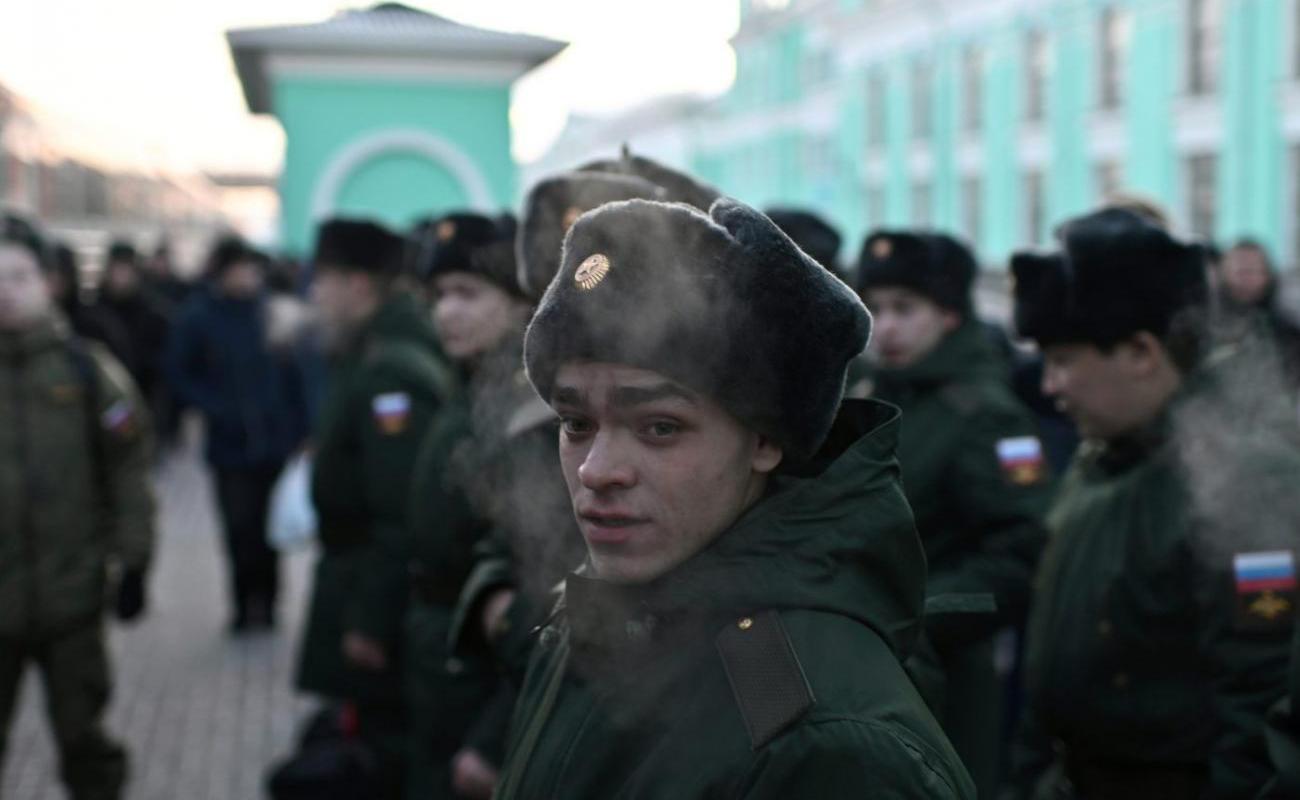Russia’s War for High School Leavers

Sergey Rybalchenko, chairman of Russia’s Commission for Demography, proposed shaving a year off school studies to 10 years, and cutting specialist higher education from six years to five — as it was in the Soviet era — so young Russians might begin to have children sooner.
The plan was criticized by several deputies, who said it would make little difference as students can already marry once they reach 18, but the loudest opposition came from military analysts angry that children would graduate before reaching draft age.
They fear a repeat of the recruitment problems during the first Chechen war in the 1990s. At that time, the Soviet education system was still in use, and, having started school at 6-7 years old, children finished by the age of 17 and had at least one year to enter college and university, allowing them to defer military service until the end of their studies.
Currently, Russian schoolchildren receive a certificate at 18 and have no time to start a family before conscription. It’s a dire issue for the Russian state, which has squandered the lives of 250,000 young men and left at least another 750,000 wounded even as birthrates plunge to historic lows. Government measures like making abortion harder have failed to solve or even impact on the statistics.
Many young males are fast-tracked into the army with no chance of applying for higher education. And there are examples of teenagers being taken to the frontlines before they are able to finish school.
In one such incident, Said Murtazaliev, an 18-year-old Dagestani who had travelled to Moscow for a holiday with friends in January, was arrested by police, who accused him of fraud. His relatives are certain the charges were fabricated as a pretext for abducting him.
The teenager was tortured and forced to sign a contract with the Ministry of Defense, which sent him to the war in Ukraine before he could finish school. He survived for less than three months at the front.
On March 7, Murtazaliev sent a video to his mother, which said that “on orders of the regimental commander, 1,150,000 rubles were collected so the boys weren’t sent on an assault.” After extorting the cash, the commander decided to “zero out” by destroying the teenager as a witness, according to his mother, Leila Nakhshunova. On March 8, Murtazaliev was declared missing in action.
As well as coercion and abductions, Vladimir Putin’s government is changing the law to make it harder for young people to evade the draft.
A bill was introduced in the State Duma in July for year-round conscription into the army, replacing the current biannual conscription campaigns, which run from April 1 to July 15 and October 1 to December 31. The change would permit the continuous sending of draft notices, medical exams, and psychological selection, cutting the opportunities for young people to pursue non-military alternatives that would prevent them from being called up.
Alongside closing that loophole, military advisers favor keeping children in school for longer to further expose them to the relentless war propaganda in Russian classrooms, which has not yet been replicated in universities.
There is increasing evidence that pupils are not simply fed propaganda in school but are also being trained to be soldiers. They learn to assemble machine guns and, in a number of schools, are trained to be drone operators using simulations of combat zones.
Teenagers, under the guidance of instructors from law enforcement agencies, also assemble drones and send them to the front, making the extra year at school an opportunity for war production.
The fierce debate over the relative importance of breeding future soldiers or sending those already born to the front is currently being won by the military. The Russian Army does not have the luxury of waiting for the next generation to mature, and it is hunting for today’s recruits — even if they are only children.
